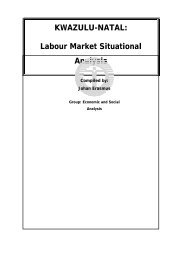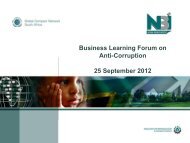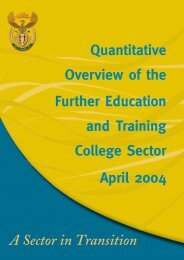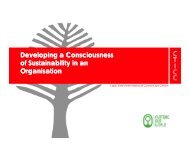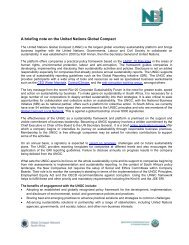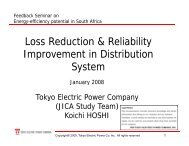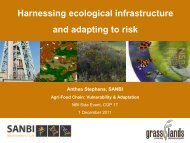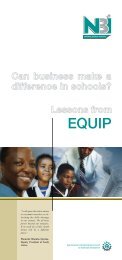Sustainable Forest Finance Toolkit - PwC
Sustainable Forest Finance Toolkit - PwC
Sustainable Forest Finance Toolkit - PwC
- No tags were found...
Create successful ePaper yourself
Turn your PDF publications into a flip-book with our unique Google optimized e-Paper software.
Local communities and indigenouspeople briefing note3 of 4New Application HOMESome of the most pressing social issues related tosustainable forestry include:Violation of property rights, and therights of local people (includingindigenous groups)<strong>Forest</strong>ry operations (logging and processing) should consider,and be compatible with, the local land tenure rights regime,which may include community-based forest managementsystems.Land-use rights held by indigenous communities may beundocumented and have evolved over millennia. In contrast tolegal rights they can be much harder to demonstrate but arearguably equally legitimate. In countries where treatiesestablish these rights, interpretation and enforcement mayaffect forest management.Subsistence use of the forest should be respected. Violationsof the rights of local people may include bribery and access tolarge concessions through gifts to certain members of thecommunity without the consultation of the full community.Participation and consultation<strong>Forest</strong> operations should include the meaningful participationof and consultation with local communities and indigenouspeoples appropriate to the nature and scale of the operation,the type of ownership (public vs. private), and local legalregimes and customs. The use of FPIC is widely accepted asbest practice to engage communities, but it is seen aschallenging by some banks to implement in practice.The United Nations Permanent Forum on Indigenous Issuesemphasises Free, Prior & Informed Consent (FPIC) as a‘process undertaken free of coercion or manipulation,involving self-selected decision-making processesundertaken with sufficient time for effective choices to beunderstood and made, with all relevant informationprovided in an atmosphere of good and faith and trust.’(United Nations Permanent Forum for Indigenous Issues,2009)Engagement that is based on information, inclusiveness,dialogue, legal recognition, monitoring and evaluation andcapacity building can benefit communities and businessesalike. Especially where land tenure and traditional rightsare uncertain, the appropriate degree of consultation canbe controversial. Feedback from consultations should beincorporated into company strategy, and action taken toresolve issues raised.Capacity buildingBuilding the capacity of local people (including indigenousgroups) to work in the industry sector, and understand,negotiate and participate in agreements regarding themanagement of their resources and participate in theproduction supply chain on an equitable basis.Recognition and support of culturalidentity.This includes maintenance, use and promotion oftraditional knowledge and practices of local communitiesand indigenous peoples which in some regions is beinglost.Page 53Regions most at riskAs mentioned above, forestry companies have facedchallenges meeting the needs of indigenous peoplesin many post colonial countriesThe differences in social performance between andwithin countries and regions are significant. It isimportant to understand the specifics of the region inquestion. Areas of concern include the following:Areas associated with armed conflict (in some caseslogging and trade in wood-based products have beenused to sponsor armed conflict).Areas known to have flagrant violations andavoidance of workers’ and human rights.pwc



